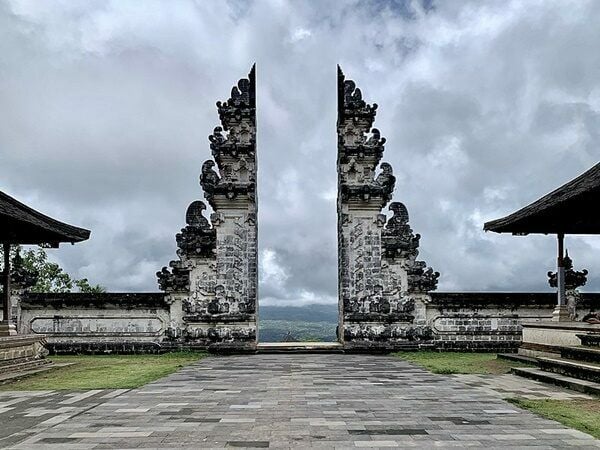Northern Thailand: Gate to Heaven stirs debate due to similarity to Bali temple

A recent opening of a new tourist spot in Nan province, Thailand, named Gate to Heaven sparked widespread criticism for its striking resemblance to the famous Lempuyang Temple in Bali, Indonesia.
The site’s replication of the iconic Lepuyang Temple ignited a heated online debate about cultural appropriation and originality in tourism.
The Gate to Heaven became a trending topic on social media platforms after a popular travel page shared images of the newly opened site. The photos showcased a view similar to the iconic Lempuyang Temple in Bali, a popular tourist destination in Indonesia, with the post captioned,
“There is not only one Gate to Heaven in Bali but we also have one in Nan.”
The new tourist spot is open daily from 8am to 6pm, charging an entrance fee of 50 baht. Its popularity rapidly soared, attracting numerous visitors eager to capture the scenic view. However, the Gate to Heaven also received backlash from individuals critical of the site’s imitation of a foreign culture.
Critics voiced their concerns on various social media platforms.
“Why try to mimic Bali?”
“Don’t we have other unique selling points? Why do we need to copy others?”
“In the future, don’t complain about the Cambodians, I feel embarrassed for us.”
Others pointed out the irony of Thais criticising Cambodians and Vietnamese for copying Thai culture, whilst doing the same.
Despite the criticism, some defended the decision to replicate the landmark, arguing that it is common practice in tourism to draw inspiration from famous sites around the world. They contend that it can help stimulate the local economy, reported KhaoSod.
It is worth noting that while the Gate to Heaven in Nan offers a similar view to Bali’s Lempuyang Temple, the two sites are fundamentally different. The Lempuyang Temple is a Hindu temple and a place of worship, whereas the Gate to Heaven in Nan is primarily a tourist attraction. This distinction is crucial in the ongoing debate about cultural appropriation and originality in tourism.
Latest Thailand News
Follow The Thaiger on Google News:


























